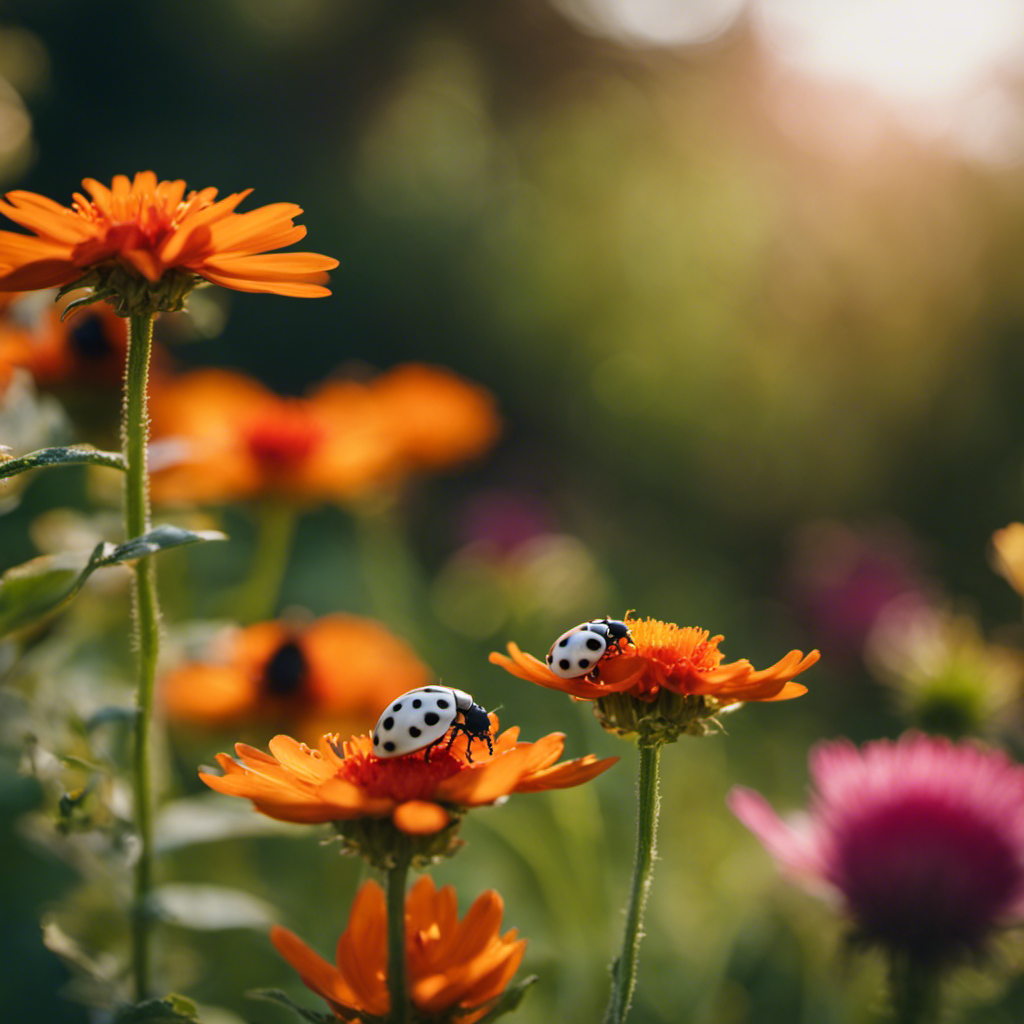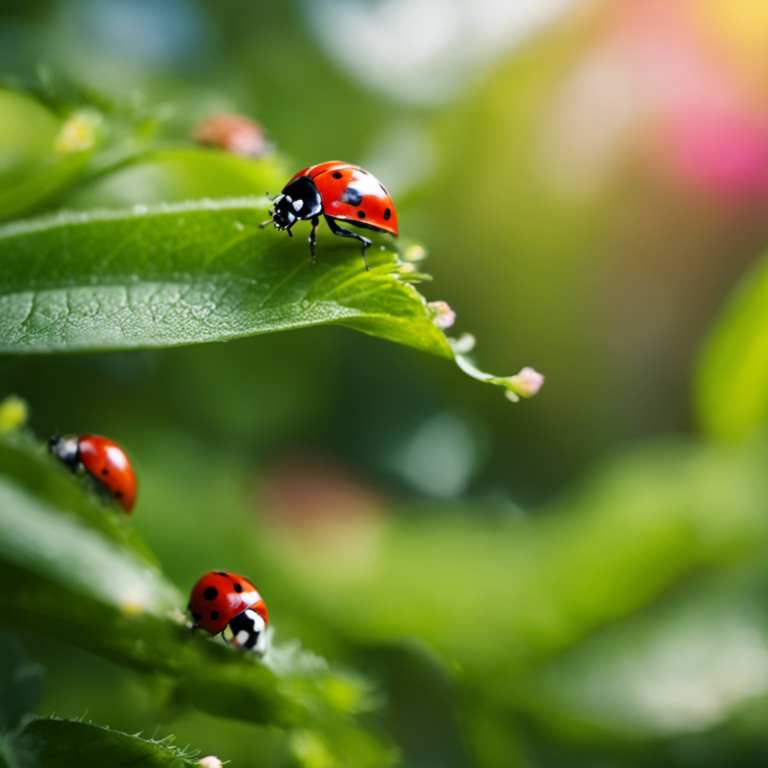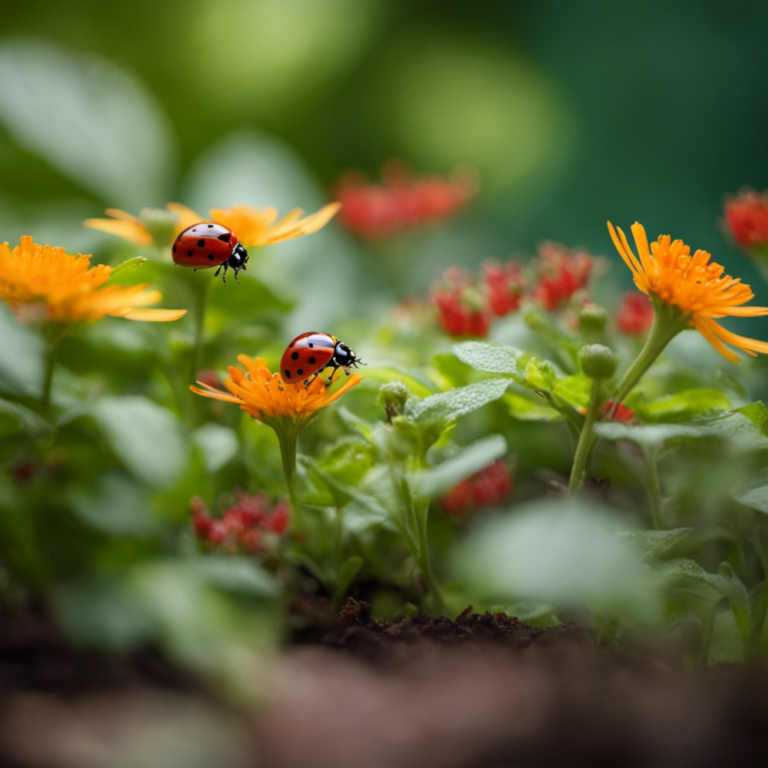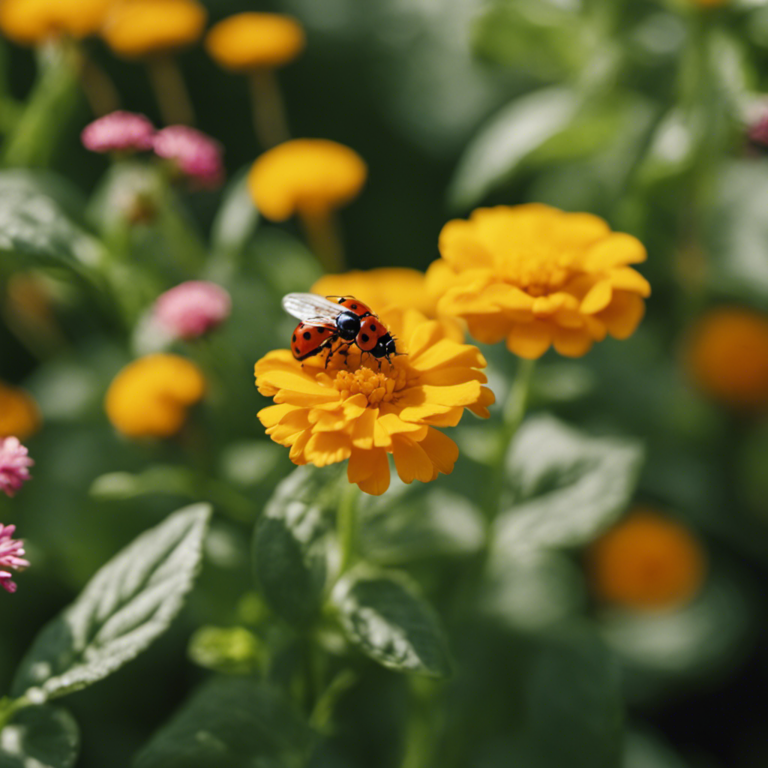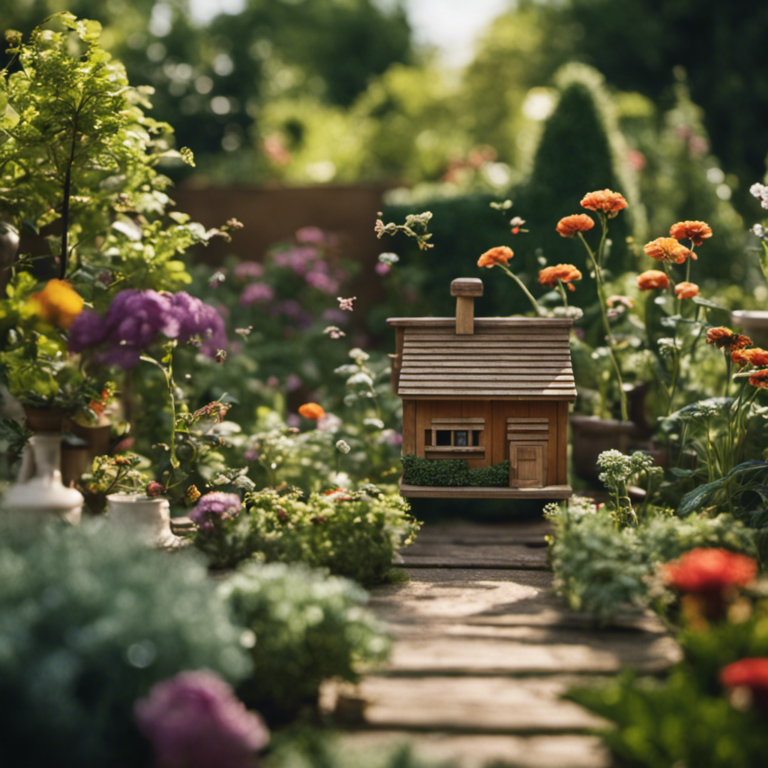Looking for a way to get rid of pests without harming the environment? You’re in luck! In this article, we’ll explore eco-friendly pest control methods that harness the power of nature.
By using biological controls, natural repellents, companion planting, mechanical barriers, and integrated pest management, you can keep your home and garden free from pests without resorting to harmful chemicals.
These sustainable solutions not only protect your surroundings but also contribute to the greater good.
Get ready to embrace the wonders of nature and create a pest-free environment for yourself and your loved ones.
Key Takeaways
Unlock the Benefits of Eco-Friendly Pest Control
By adopting eco-friendly pest control methods, you can achieve a harmonious balance in your garden while safeguarding the environment. Instead of relying on harmful chemicals, you can effectively manage pests by using natural repellents, biological controls, companion planting, mechanical barriers, and integrated pest management.
This approach harnesses the power of nature itself, turning it into an ally in the battle against pests. So why not take advantage of nature’s solutions and create a pest-free environment in a sustainable way?
Biological Controls
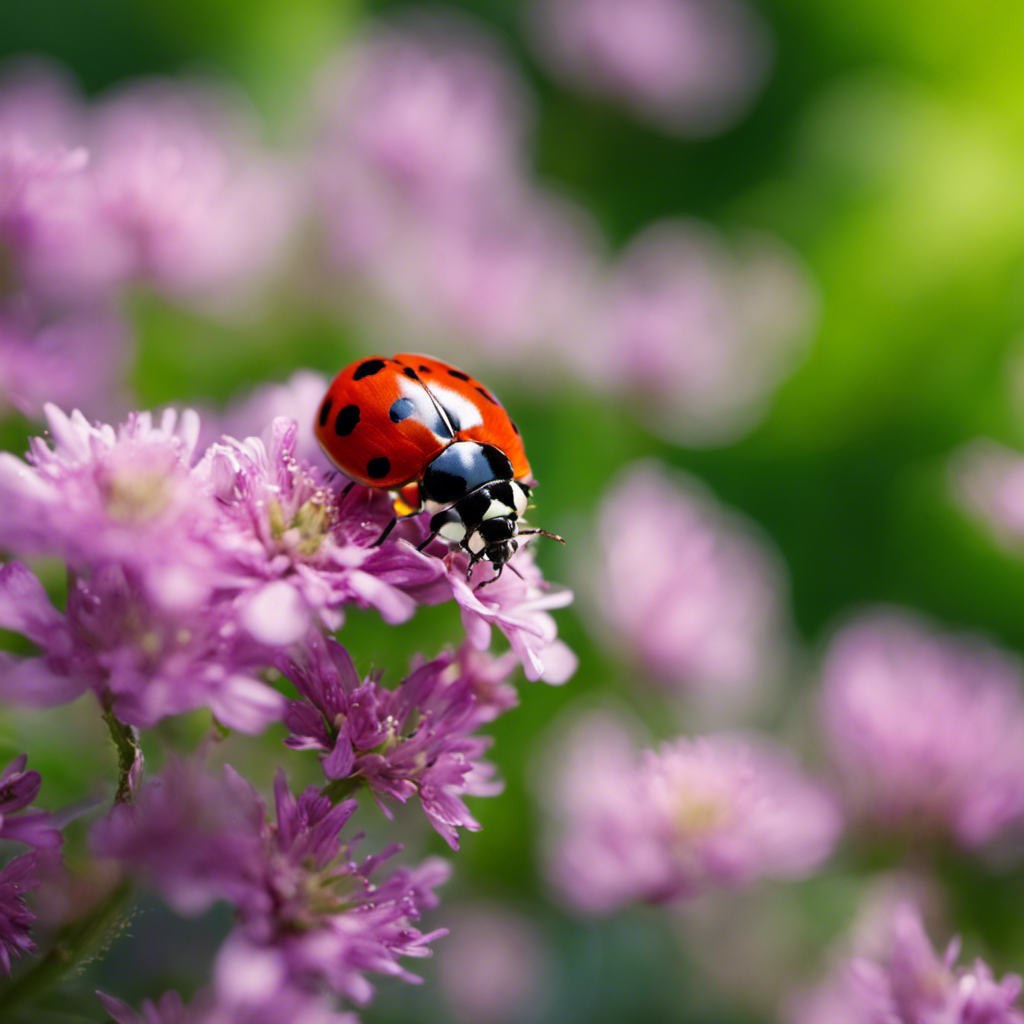
Using Biological Controls for Natural Pest Management
Biological controls offer an effective solution for managing pests in your home and garden. Instead of relying on chemical pesticides, biological controls harness the power of natural enemies and biopesticides to control pest populations.
Natural enemies, such as ladybugs, lacewings, and predatory mites, play a crucial role in keeping pest populations in check. These beneficial insects feed on pests like aphids, mealybugs, and spider mites, reducing the need for harmful chemicals.
Biopesticides, derived from natural substances like bacteria, fungi, and plant extracts, are another valuable tool in biological pest management. These biopesticides target specific pests while minimizing harm to non-target organisms, making them an environmentally friendly choice.
By using biological controls, you not only effectively manage pest problems but also adopt a healthier and more sustainable approach to pest management in your home and garden.
Natural Repellents

Using natural repellents is a great way to effectively keep pests away from your home and garden. Instead of relying on harsh chemicals, you can opt for essential oils and homemade remedies.
Peppermint, lavender, and eucalyptus essential oils have been proven to repel common household pests like ants, mosquitoes, and spiders. To create your own natural repellent spray, simply dilute a few drops of essential oil in water and spray it around your home or garden.
Another effective homemade remedy is a mixture of vinegar and water, which can deter insects such as flies and fruit flies.
These natural repellents not only keep pests at bay but also provide a safer and eco-friendly alternative to chemical-based repellents.
Companion Planting

Companion Planting
Enhance the health of your garden and naturally deter pests by using companion planting techniques. Companion planting involves strategically placing certain plants together to create a mutually beneficial relationship. By selecting the right combinations, you can attract beneficial insects that prey on garden pests, reducing the need for chemical pesticides.
A great example of companion planting is growing marigolds alongside tomatoes. Marigolds emit a strong scent that repels nematodes, microscopic worms that can harm tomato roots.
Another effective combination is planting basil near tomatoes, as basil repels aphids and whiteflies, common pests that can damage tomato plants.
Companion planting not only helps control pests but also promotes the growth and flavor of your plants.
Mechanical Barriers

Protect your garden from pests by creating physical barriers using mesh screens or fencing. These mechanical barriers are an effective way to prevent pests from entering your garden and causing damage to your plants. Here are some options for pest exclusion using physical deterrents:
-
Mesh screens: Install mesh screens over windows, doors, and other openings to keep pests out of your home and garden.
-
Fencing: Use sturdy fencing around your garden to deter larger pests like rabbits and deer.
-
Row covers: Protect your plants from flying insects and pests by covering them with lightweight fabric or mesh.
-
Raised beds: Create a barrier between your plants and ground-dwelling pests by building raised beds.
-
Netting: Cover your fruit trees and bushes with netting to prevent birds and other animals from eating your harvest.
Integrated Pest Management
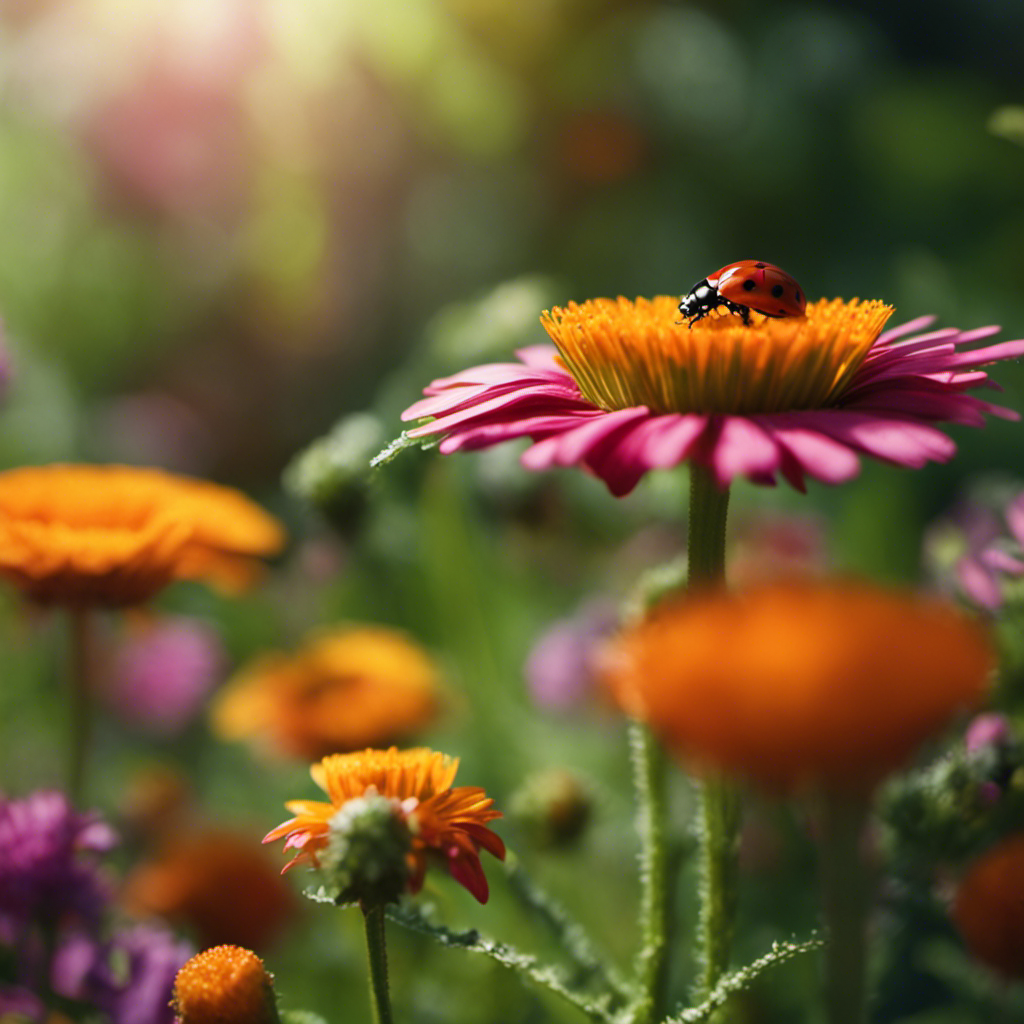
Take control of pests in your garden with an effective and environmentally-friendly approach: Integrated Pest Management (IPM). IPM is a sustainable pest control method that focuses on long-term prevention and management of pests, while minimizing the use of harmful chemicals. By integrating various pest control strategies, IPM aims to create a balanced ecosystem that’s less conducive to pest infestations.
Here are some environmentally friendly pest management strategies that can be incorporated into an IPM plan:
-
Cultural Control: Modify the environment to discourage pest growth. This can be done by practicing proper sanitation, crop rotation, and planting pest-resistant varieties.
-
Biological Control: Introduce natural predators or parasites to control pests. Beneficial insects like ladybugs and praying mantises can help keep pest populations in check.
-
Mechanical Control: Use physical barriers or traps to prevent pest entry. This can include installing fences, netting, or sticky traps to keep pests away from your plants.
-
Chemical Control: Use pesticides as a last resort, targeting specific pests. When using chemicals, opt for low-toxicity options and follow the instructions carefully to minimize environmental impact.
With IPM, you can effectively manage pests in your garden while minimizing the impact on the environment. By adopting these sustainable pest control methods, you can create a healthier and more balanced ecosystem.
Conclusion
Discover the Power of Eco-Friendly Pest Control
By embracing eco-friendly pest control methods, you can create a harmonious balance in your garden while protecting the environment. Instead of relying on harmful chemicals, you can manage pests effectively using natural repellents, biological controls, companion planting, mechanical barriers, and integrated pest management.
This approach allows you to let nature work its magic in your garden and become your ally in the fight against pests. So why not unlock the power of nature and create a pest-free environment in a sustainable way?
